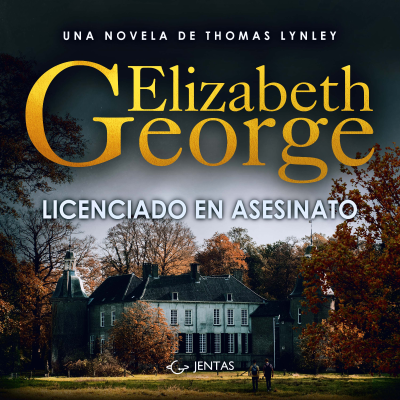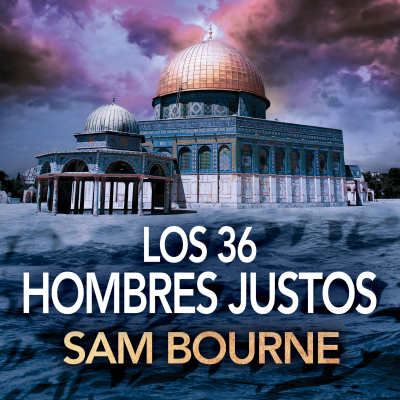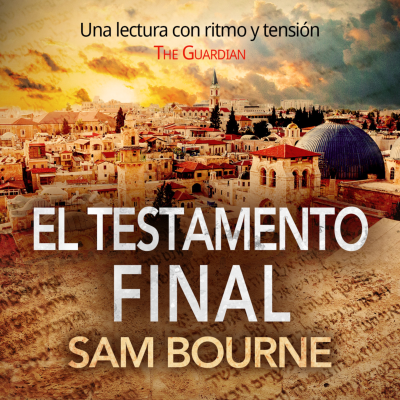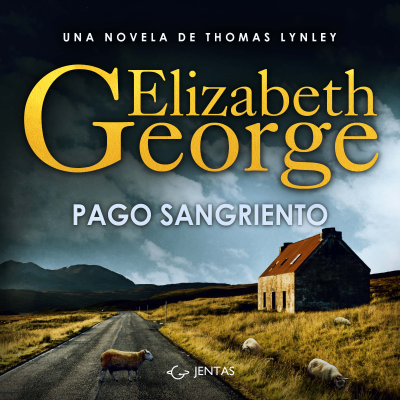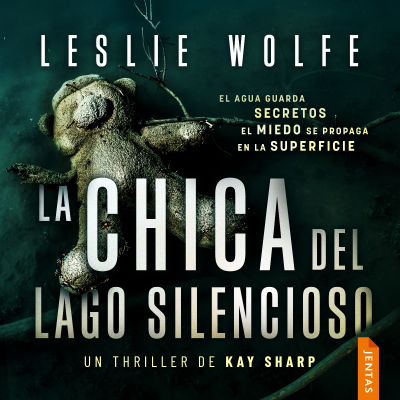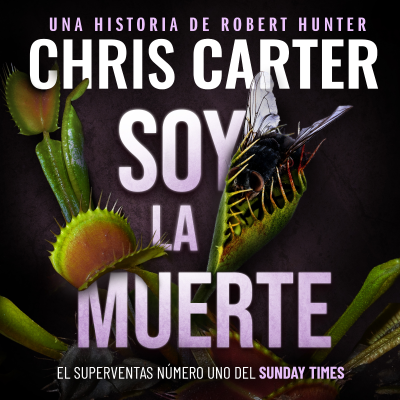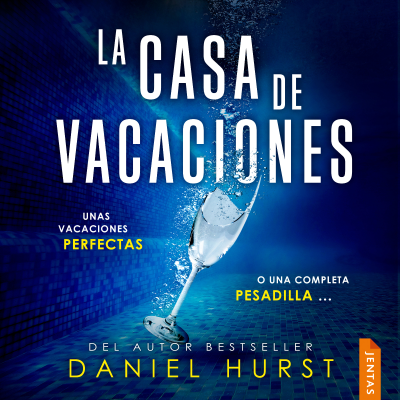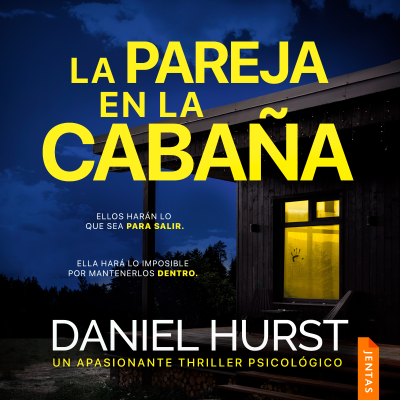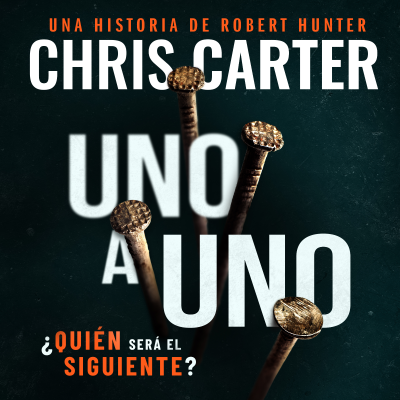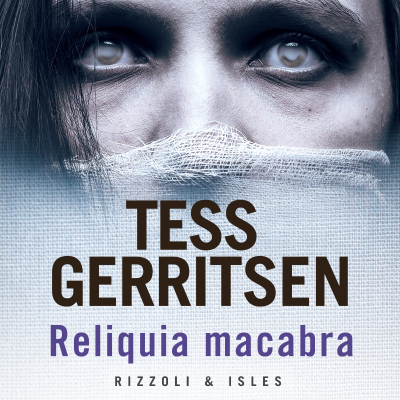
Paul Maleary's Ex-Job Downloaded Podcast
Podcast de Paul Maleary
Disfruta 90 días gratis
4,99 € / mes después de la prueba.Cancela cuando quieras.

Más de 1 millón de oyentes
Podimo te va a encantar, y no sólo a ti
Valorado con 4,7 en la App Store
Acerca de Paul Maleary's Ex-Job Downloaded Podcast
I served with Essex Police for 30 years, a chapter of my life filled with both haunting memories and exhilarating moments. Throughout my career, I had the privilege of interviewing a number of high-profile suspects—each encounter a vivid snapshot of human nature, revealing both darkness and resilience. The aim of this podcast is to delve deeper into the lives of former members of the Police and Military from across the globe. This is not just a collection of stories; it's a tribute to the extraordinary journeys of these remarkable individuals, often overlooked but never forgotten.Our contributors hail from diverse backgrounds, each with a unique story etched into the fabric of history. Picture this: a soldier landing on the Normandy beaches, adrenaline pumping in a chaotic backdrop, recounting the camaraderie that emerged amidst the chaos. Or a military operative sharing a heart-stopping tale of survival after being shot by the Taliban, offering insights into not just the battles fought but the battles within. We’ll hear from the man who carried the radio at the 1966 World Cup Final, a moment that united a nation, and the manager of the mortuary following the devastating 7/7 bombings, who witnessed humanity at its most fragile. These men and women are heroes of our time, and their stories are committed to this podcast for eternity!But there is also a narrative of transition—stories that weave through the fabric of public service into new realms of entrepreneurship and creativity. From authors penning the tales of their experiences to innovators launching successful businesses, the contributions of Police and Military personnel extend far beyond their uniforms. They are not one-dimensional figures; they are multifaceted individuals, and you will be amazed at the diverse lives they lead following their honorable careers.With each episode, we aim to illuminate the profound impact these experiences have had on their paths. If you have a Police or Military background and would like to take part in this enriching journey, I invite you to connect with us. Please email admin@ex-job.co.uk. Your story, like so many others, deserves a platform to be shared and celebrated. Join us as we explore courage, resilience, and the unbreakable human spirit, one story at a time. Together, we will honor these incredible journeys that shape not just the individuals but the very essence of our society.If you have a Police or Military background and would like to take part in my podcast please email admin@ex-job.co.uk Hosted on Acast. See acast.com/privacy for more information.
Todos los episodios
130 episodiosThis podcast contains graphic content relating to the death of Nina Mackay, a tragic event that has left a profound impact on the community. Richard Keil, a determined individual from South Woodham Ferrers, initially faced disappointment when his application to join a public service course at Chelmsford College was rejected. Yet, destiny had other plans for him. Encouraged by his sister, who was dating a Met Police Cadet, Richard decided to take a leap of faith and apply to join the cadets himself. This time, fortune smiled upon him, and he was accepted. His journey began in the heart of the community; Richard found himself immersed in the lives of others as he worked at a local boy’s club and at Plaistow Hospital, where he acted as a bingo caller for elderly residents. The laughter and joy he brought to those faces revealed the power of connection and compassion in everyday life. Upon joining the regular service, Richard was stationed at Leeman Street, navigating through some of the most iconic parts of the East End of London. He patrolled areas that had once been terrorized by Jack the Ripper, feeling the weight of history on his shoulders. Each day brought new challenges, as he learned the intricacies of policing amid the bustling streets that had seen both love and loss. The pulse of the city resonated in his every step, and he was continually deployed alongside his colleagues, each of whom became a vital part of his evolving narrative. After a few years, Richard made the transition to the Territorial Support Group (TSG), where he encountered a colourful cast of characters who imparted invaluable lessons about the art of policing. These experiences shaped his identity as an officer, nurturing a deep respect for the complexities of human behaviour in the face of adversity. The camaraderie he shared with his colleagues fostered an environment of mutual support, allowing them to face the challenges of policing together. His policing life changed on 24th October 1997. Richard was part of the team who was deployed to arrest a suspect in East London during this arrest Nina Mackay was fatally stabbed by the suspect. As Richard concluded his time on the TSG, he transitioned to the surveillance team, honing his skills in targeting criminals who roamed the metropolis. The thrill of the chase was palpable, but it was his eventual move to the armed surveillance team that marked a significant turning point in his career. Here, he faced the stark realities of high-level crime and terrorist activity, a world where split-second decisions could mean the difference between life and death. He vividly recalls his first day as a plain-clothes armed officer; it was a surreal experience, filled with tension and excitement, forever etched in his memory. In 2008, Richard's dedication and hard work paid off when he was promoted to Sergeant and assigned to Paddington. Two years later, he ascended to the rank of Inspector and took up his post in Ealing. With each promotion, his commitment to maintaining police standards deepened, especially regarding the controversial yet necessary practice of stop-and-search. Richard believed that empowering officers to value their position was crucial not just for effective policing, but for building trust within the community. His journey illustrates the resilience and dedication of those who serve, a testament to the spirit of the Metropolitan Police and the complexities of modern policing. #policingjourney #communityfirst #serveandprotect #londonpolice #NinaMackay #dedicationtojustice #policingwithheart #eastlondonstories ---------------------------------------- Hosted on Acast. See acast.com/privacy [https://acast.com/privacy] for more information.
Gripping The Rail AT The Old Bailey ---------------------------------------- Hosted on Acast. See acast.com/privacy [https://acast.com/privacy] for more information.
Part 2 Tony undertakes training including a course at Aldermaston to find “Dirty Bombs” during a search exercise at Lippitts Hill he encountered the SAS. We discuss the “Foxtrot 11” and the formation of D11, the specialist firearms team. During his time Tony witnesses a number of incidents that have been recorded in the annals of history for the metropolitan police. Including the shooting of an officer by a cross dressing burglary suspect called David Martin . The arrest of this man resulted in 2 officers being charged with attempted murder. The officers were subsequently found not guilty. Tony became an instructor and was part of Blue team and would assist in the instruction of officers who were authorised shots for the force. As part of “Blue team” Tony was deployed to St James Square following the murder of Yvonne Fletcher. He talks of the time spent with the SAS and how he sketched cartoons for the staff involved in the containment. His first shooting was in 1985 at a domestic siege where the suspect survived and faced trial at the old bailey. 18 months later he was called the Equalizer by the Sun. Tony had been deployed to a potential armed robbery. The robbery took place and Tony deployed from an observation vehicle. He and his colleagues confronted the suspects at an abattoir. The suspects turned, presented their weapons and believing that he was in immediate danger Tony opened fire and shot 3 suspects. 2 of them died at the scene. The 3rd man survived. The senior management were more concerned about the ethnicity of the suspects than the welfare of the officers involved. ---------------------------------------- Hosted on Acast. See acast.com/privacy [https://acast.com/privacy] for more information.
Tony Long – Tony was educated at a private school, where his early days were filled with rigorous routines and the exploration of his passions, particularly for guns and the great outdoors. The smell of freshly polished shoes and the satisfaction of a well-made bed became the backdrop for his childhood, instilling a sense of discipline that would serve him well in his future career. By the age of 18½, when he joined the police force, navigating the complexities of law enforcement felt like a natural progression for him. Tony's first posting following training took him to Lewisham, an area alive with the vibrant pulse of London life. Even though he hailed from the serene surroundings of Sussex, he was well-acquainted with the city, his heart often drawn to its bustling streets thanks to family ties. His transition into adulthood was marked dramatically when he married his girlfriend, who was pregnant, and by the tender age of 19½, he found himself a proud father to a baby girl. This new chapter in his life brought a mix of joy and responsibility, shaping his worldview and fueling his determination to protect and serve. As Tony progressed from street duties to the SPG (Special Patrol Group), he encountered a period shadowed by the tragic events surrounding Blair Peach. The haunting memories of that time lingered, shaping the reputation of the SPG and the public’s perception of police. When he first stepped into the chaos of the 1981 Riots, he quickly realized that the streets were not just a backdrop for his duties; they were a living, breathing tapestry of human emotion and conflict. It was during this tumultuous time that he acquired his first “Nato British Army Riot Helmet,” a heavy piece of equipment that now sat as a stark reminder of the turmoil that often accompanied his role. Reflecting on the modern police service, Tony holds a nuanced view. He expresses admiration for the officers on the front lines, who now face scrutiny from “Auditors” and “Activists” in a society where every action is documented and dissected. He recalls the halcyon days of policing, a time when officers donned tunics, and the public interaction felt more personal, devoid of the ever-watchful eyes of cameras. It was a simpler time when a handshake could seal a deal and a friendly nod could disarm potential conflict. Despite an increase in population—from 27,000 officers in London in 1975 to only 30,000 today—Tony notes a concerning decline in civilian support. This paradox of fewer officers for a growing city weighs heavily on his mind, as he understands the challenges posed by this reality. The streets are now busier, and the complexity of policing has transformed dramatically, necessitating a shift in how officers approach their duties. Tony's introduction to firearms was unexpected, sparked by the urgency of an arrest before his duty shift even began. On just his second day, he was thrust into a high-stakes situation, tasked with apprehending a suspect accused of stabbing an officer. Returning to Lewisham with a team of officers, he felt the palpable tension in the air; his interactions with the public along New Cross Road starkly contrasted his earlier days patrolling the beat, each encounter underscoring the turbulence of the times. His basic firearms course, spanning five days, became a crash course in both skill and strategy. Four days were devoted to honing marksmanship on the range, while the final day opened the door to tactics that would guide him through potentially perilous situations. Through it all, he remained committed to his mission, embodying the spirit of a protector in a world that increasingly demanded vigilance and resilience. ---------------------------------------- Hosted on Acast. See acast.com/privacy [https://acast.com/privacy] for more information.
Steve Reynolds joined Essex Police Cadets in 1971, a youthful aspirant with dreams of serving his community and upholding justice. The experience was transformative, igniting a passion that would fuel his career for decades. In September 1974, he stepped into the role of a regular constable, ready to take on the challenges of policing. By 1976, Steve's diligence paid off when he took and passed his Sergeants exam. Just months later, he faced the inspectors exam, his heart pounding as he tackled yet another hurdle. With remarkable determination, he emerged victorious in both examinations, becoming a qualified sergeant and inspector before he even turned 22. This achievement was not just a personal milestone; it was a testament to Steve’s unwavering commitment and exceptional capabilities. Steve's first posting in the Criminal Investigation Department (CID) was at Rayleigh, a place where he would encounter a group of superb characters—experienced detectives who were consummate professionals. He fondly remembers his initiation into the CID, the adrenaline rush of dealing with his first suspect, and the camaraderie that flourished amidst the seriousness of their work. In May 1980, he was promoted to a substantive Detective Sergeant and assigned to South Ockendon. There, he was given collar number 321, a digit that would earn him the affectionate nickname "Dusty." Under the mentorship of DCI Fred Stanard, Steve found himself in an environment where humor was as sharp as the investigations they pursued. The opportunity to further his career arose when Peter Blyth, the Divisional Commander, encouraged Steve to apply for a uniform inspector’s role at Grays. With a mix of excitement and trepidation, he submitted his application, and after a rigorous selection process, he was thrilled to find out he was successful. His tenure as an Inspector lasted a year, but it laid the groundwork for his next significant challenge: joining C11 at Scotland Yard in 1986. There, Steve became part of a diverse team from across the region, working together to develop crucial intelligence that would be funneled to enforcement teams. After two intense years, he returned to Essex, filled with pride at having the opportunity to serve as a Detective Inspector in his hometown of Southend, where he could give back to the community that had raised him. In a harrowing twist of fate, Steve was called to investigate a missing persons inquiry in the Philippines involving a woman named China Rose Simms. The case was shrouded in mystery, enveloping him in a world of uncertainty, as neither she nor her husband had ever been located. The late 90s brought about a poignant moment when Steve had the rare opportunity to meet Jill Dando, a beloved BBC anchor. He recalls their interactions vividly, a mixture of admiration and respect shared over aspirations and plans for the future—plans that were tragically cut short by her untimely murder. One of the most challenging cases he faced was the murder of Chris Castle, an event that would test his resolve as the Senior Investigating Officer (SIO). The crime was committed by members of the extreme right-wing group Combat 18, a grim reflection of the societal issues that plagued that era. Drawing from his extensive experience, Steve penned a book titled "The Met On Trial," which explores the investigation following the fatal shooting of Jean Charles De Menezes. In this work, he reflects on a career marked by both triumphs and tragedies, illuminating the complexities of policing in a modern society. Through storytelling, he aims to provide insight into the human experiences behind the badge, a narrative that resonates not just with fellow officers but with anyone who has grappled with the moral dilemmas of justice and accountability. ---------------------------------------- Hosted on Acast. See acast.com/privacy [https://acast.com/privacy] for more information.

Valorado con 4,7 en la App Store
Disfruta 90 días gratis
4,99 € / mes después de la prueba.Cancela cuando quieras.
Podcasts exclusivos
Sin anuncios
Podcast gratuitos
Audiolibros
20 horas / mes










